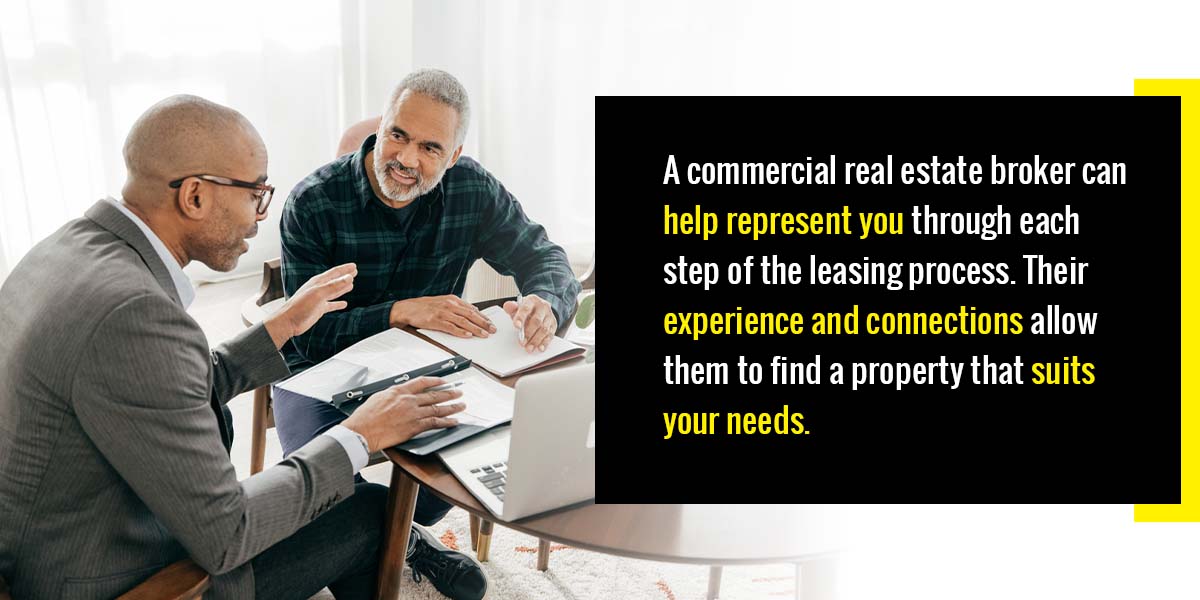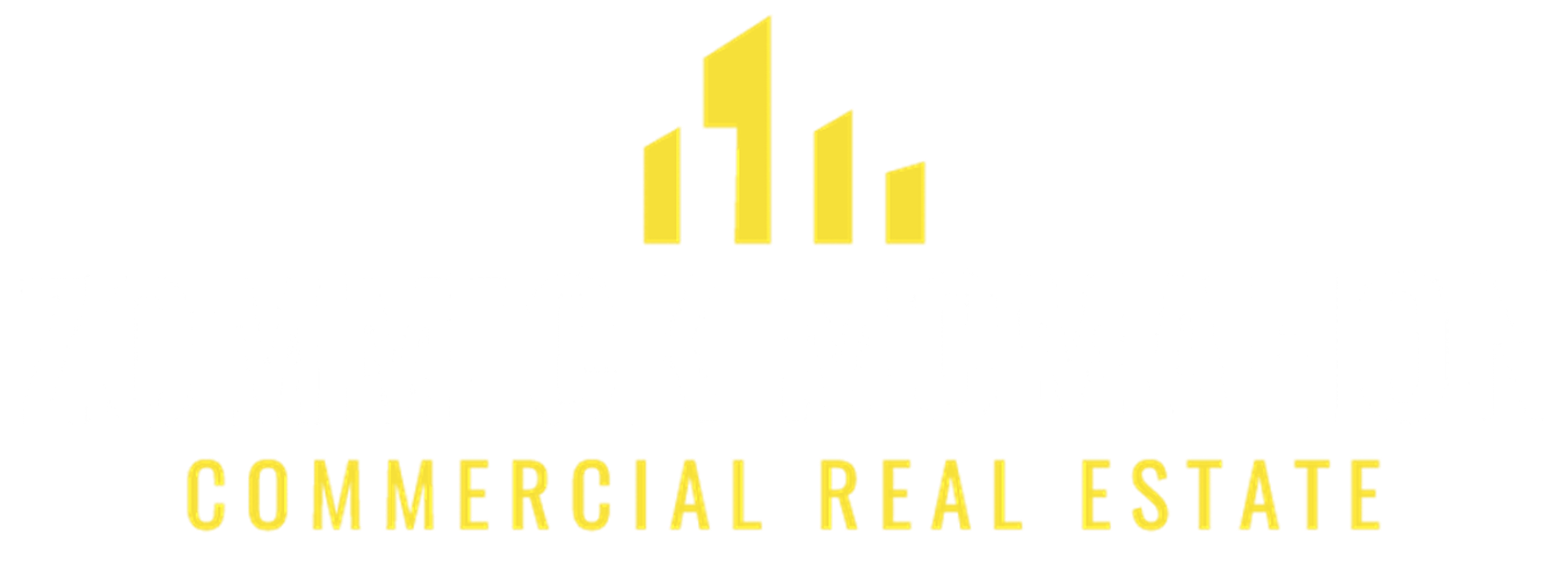
If you’re planning or considering signing a commercial lease, you must know how to negotiate to get the best deal. A commercial lease can be intimidating for first-time tenants, but it’s essential not to skip over the negotiation process.
While many people believe that the first lease introduced by the landlord is the end-all, be-all, the truth is you have plenty of room to negotiate your terms. Below, you’ll learn about commercial leases and negotiating a business lease.
Table of Contents
- Understanding Commercial Leases: What Are They?
- How to Negotiate Commercial Leases: Top Tips to Consider
- Key Terms to Negotiate in a Commercial Lease
- Learn More About Zommick McMahon Commercial Real Estate Tenant Representation Services
Understanding Commercial Leases: What Are They?
A commercial lease is a legally binding agreement between the lessor and lessee for the use of a commercial property, whether an office, warehouse, industrial property or another used for business purposes. A commercial lease acts as a contract between a landlord and a business tenant that allows them to rent the property for commercial use.
As soon as the lessee signs the commercial real estate lease, it becomes legally binding. While both a commercial lease and a residential lease are legally binding contracts, there are some notable differences to be aware of if you’ve never signed a commercial lease before:
- Negotiable terms: The terms for most commercial leases are negotiable. You can potentially negotiate the terms regarding rent, allowable improvements and more, which isn’t usually the case with residential leases.
- Varied terms: Commercial leases often have various terms because business needs vary between one tenant from the next. Residential tenants often have the same requirements, so their lease terms can be standardized.
- Longer terms: Most commercial leases last around three to five years, creating a long relationship between the lessor and lessee. In contrast, most residential leases only last about a year.
- Legal protection: Commercial leaseholders tend to have less legal protection than residential leases. This is because consumer laws apply to residential leases, not commercial leases, so commercial leaseholders have fewer protections.
Types of Commercial Leases
Since there’s so much variance with commercial leases, different types are available to commercial lessors and lessees. The five types of commercial leases include:
- Net lease: A net lease requires that tenants pay rent on top of utilities, insurance and property taxes. The landlord will pay for maintenance, repairs and other costs.
- Double net lease: Like a net lease, a double net lease requires that tenants pay rent and utilities, but they’re also responsible for a share of the property taxes, insurance premiums and janitorial services. The landlord is still responsible for maintenance and repairs.
- Triple net lease: A triple net lease makes the tenant responsible for all the operating costs of the building, except for structural repairs. This commercial lease is the most favorable option for landlords because they don’t have to cover most building operations costs.
- Percentage lease: A percentage lease is more common in multi-retail commercial properties, such as malls. The tenant will pay their base rent and a percentage of their sales above a specific minimum. Commercial tenants benefit from a percentage lease by reducing their rent since they pay a portion of their sales.
- Gross rent lease: A gross rent lease allows landlords and tenants to split costs related to the property equally. The tenant will pay a set amount that covers rent, taxes, repairs and utilities.
How to Negotiate Commercial Leases: Top Tips to Consider
Negotiating your commercial lease can help you get the most out of the deal. Below, you’ll find steps and commercial lease negotiation tips to help you get the best contract possible.

1. Contact a Commercial Real Estate Broker
A commercial real estate broker can help represent you through each step of the leasing process. Their experience and connections allow them to find a property that suits your needs. They also have the expertise to help you find the best deal on your ideal property through negotiations with the landlord, making them an essential part of the negotiation process.
2. Express Your Interest in Leasing the Commercial Space
First, you should determine how much space your need and find a property that meets these specifications. Ideally, you’ll want to find a few places that work and investigate the landlord, so you understand their track record.
Once you find a few places you’re interested in, you’ll want to indicate to the landlord that you’re interested in leasing the property. This step in the process usually occurs once you’ve toured the location. You or your commercial real estate broker probably already have some contact with the landlord, allowing you to express your interest easily.
3. Prepare Your Offer or Recieve an Offer
After you’ve expressed your interest, a landlord will likely reach out to propose a lease. At first, you may negotiate the broad parts of the lease before the specifics. However, discussing every aspect of the lease from the start can be beneficial to ensure the lessor and lessee are on the same page. A commercial real estate broker can help you review the lease or prepare an initial offer, allowing you to start the conversation from a good place.
4. Prepare Your Counteroffer
Before you agree to the lease, you can make a counteroffer. You may go back and forth with the landlord with offers. Your real estate broker can help you handle the negotiations, whether you communicate directly with the landlord or send a letter outlining your proposed changes.
5. Continue Negotiations as Needed
The negotiation process can continue until you reach an agreement. In some cases, it can be challenging to reach an agreement, which is why it’s essential to have multiple properties that you’re interested in leasing.
6. Sign the Lease and Begin Your Tenancy
The final step is to sign the lease. Before you sign, review the lease with your commercial real estate broker a final time to ensure any changes or additions you negotiated have been included. Once you’ve signed the lease, you’ll begin your tenancy in the commercial property.
Key Terms to Negotiate in a Commercial Lease
Before you sign a lease, you want to ensure you can negotiate the terms to best help your business. Some of the main terms to negotiate include:
- Maintenance and repair clauses: Commercial leases vary regarding who is responsible for maintenance and repairs. You may be able to convince the landlord to make repairs or renovations before your lease term starts. Your lease may also state how much you’re responsible for regarding repairs and maintenance as you’re leasing.
- Tenant improvement allowances: Some commercial leases allow the landlord to provide the tenant with funds to improve the property, including new floors, reconfigurations and lighting fixtures. A tenant improvement allowance will enable you to make changes to the property that would suit your business.
- Service charges: You can potentially negotiate the things you don’t want to include in the service charges, such as repairs or upgrades.
- Rights to sublet: Some landlords will allow you to sublet the property to others, but only with their permission.
- End-of-lease obligations: You’ll want to look at your lease to look at your obligations once your lease term ends and negotiate any of the terms you disagree with, such as how you must handle alterations you’ve made.
- Monthly rent: If you or your commercial real estate broker feel that the monthly rent is off based on your research, you can potentially negotiate for a fairer price with the landlord.
- Termination clauses: If you need to terminate your lease early, most leases have terms that you have to follow. If your lease doesn’t have a termination clause, you can negotiate one, allowing you to exit the lease if specific events occur.
Learn More About Zommick McMahon Commercial Real Estate Tenant Representation Services
Zommick McMahon Commercial Real Estate can ensure you find the best building for your business. Our expert real estate brokers can also browse listings, find detailed information and negotiate the terms of your lease on your behalf.
Our commercial buyer and tenant representation offer many services for your benefit. We’ll browse local listings, find a good deal, assess properties and negotiate with the landlord to improve your lease terms. Contact us today to learn more about our services and how we can help you find a commercial property that best suits your business!

